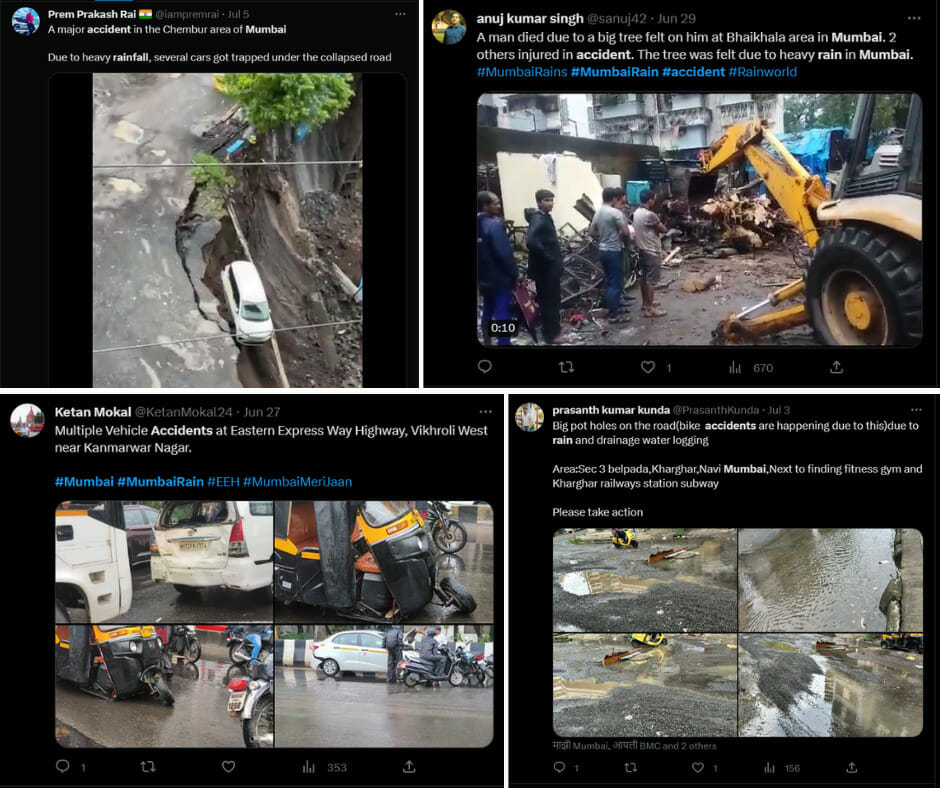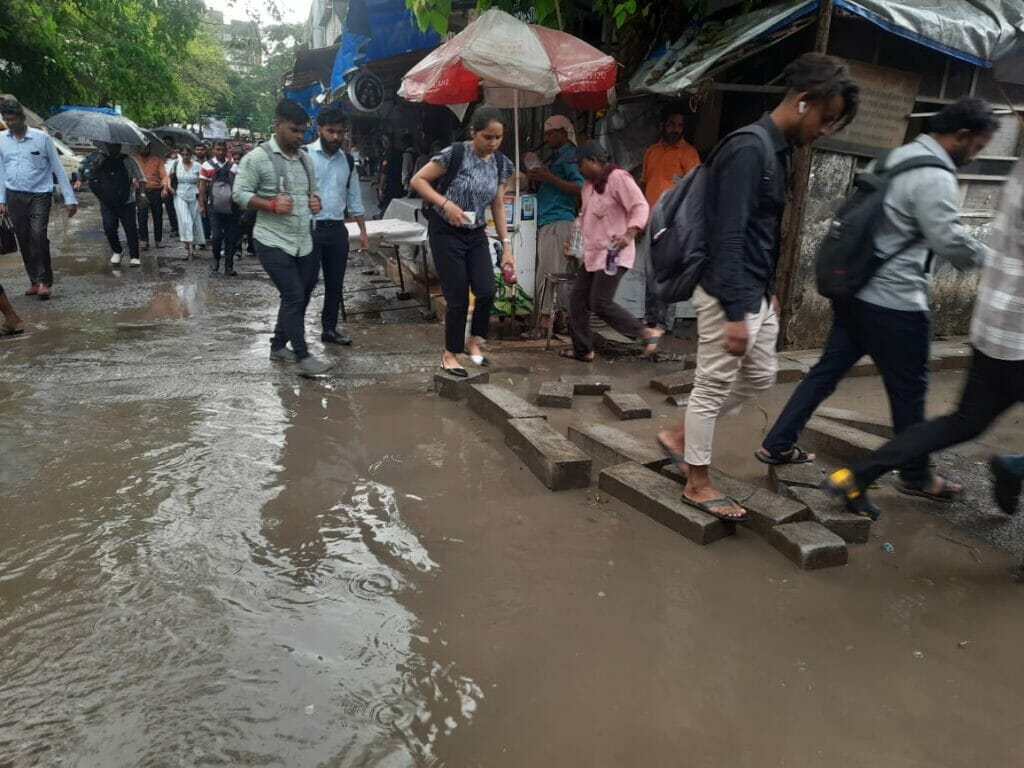Two young labourers, 25-year-old Ramkrishna and 30-year-old Sudhir Das died of drowning in June, when they were cleaning an overflowing manhole in Govandi.
Normally, the cleaning and repairs of sewer lines are done before the monsoon begins and not during heavy rains. “Why did they make the two men enter the manhole? Why wasn’t the sewer line treated on time, before monsoons?”, asks Rukhsana Nazim Mohammed Siddiquii, the ex-corporator of Govandi.
Rukhsana says one of the major reasons why an incident like this happened, was because of absence of corporators, when various measures for monsoon preparedness were planned and undertaken.
She is referring to the delayed Brihanmumbai Municipal Corporations (BMC) elections and absence of corporators at the civic body.
The Brihanmumbai Municipal Corporation (BMC) elections were to happen in 2022 but have been delayed. In the absence of ward corporators, the 24 wards of Mumbai are monitored by the ward commissioners since March 2022.
“Earlier the contractors used to fear the standing committee meetings, if they had not completed work. The meeting minutes used to reach the higher authorities, which made them work on time,” Rukhsana says. Corporators routinely flag important concerns of the ward they represent at the committee meetings. Minus this pressure, contractors may delay the stipulated work.
Ground reality
Every monsoon the citizens go through multiple difficulties, from water logging to building collapses to tree falling and the never-ending traffic. Infrastructural limitations are exposed. Citizens raise questions and ask for accountability for all these issues from their local corporators. This monsoon, they don’t have elected representatives.

Within a few days of rains, citizens had taken to social media to voice their concerns. Social media platform buzzed with posts and pictures about cars getting trapped in the collapsed road in Chembur, multiple road accidents on the eastern expressway near Vikhroli West and road accidents because of potholes and logging of drainage water in areas like Kharghar, Belpada and Navi Mumbai.

Citizens are worried about not having their representatives in such times. “During monsoon, people face a lot more problems than at other times. This is the time you want somebody on the ground to manage things. If there are no elections to ensure the city is working properly, there should be someone, who we can hold responsible. Everybody wants to point fingers at everyone but no one wants to take responsibility for anyone.” said Mehak Mathur, a citizen who lives in Goregaon.
The unofficial corporators
Many corporators, who completed their term last year, are still working unofficially in their constituencies. Citizen Matters contacted more than 30 corporators and only a few of them responded. They said though they have no authority to take immediate action, they somehow get the work done by having good relations with a few BMC officials and administrators.
“We sit in the office two times a day. People come with their grievances. Earlier when we used to work as corporators, we never needed to repeat ourselves in front of the higher authorities regarding any complaint. Now we are not in authority, so the same thing needs to be said three to four times for it to get addressed”, says Milind Dattaram Vaidya, ex corporator from G North Mahim Koliwada. “Some officers, engineers, sub engineers help us in getting the work done. Only the chief minister can tell when the BMC elections are going to happen,” he added.
Rajarajeshwari Redkar, the former corporator of the S ward says, “We get to know when problems arise in our constituency. So, as ex-corporators, we write letters to the ward officers asking them to resolve these issues. We have a lot of contacts across departments – maintenance department, garden department, fire brigade, ambulance, hospitals, etc. So, that helps”.
However, she says that funds are a problem for them since they are not sitting corporators. “We try doing as much as we can using our contacts. But when it comes to funding, we are helpless. There is a lot of work to be done for which funds are needed. They are all pending,” she says.
The corporators are also of the opinion that their role as a bridge between citizens and the administration is compromised. Priyanka Sawant, the former corporator from the H-West ward says, “Before, whatever decision had to be taken, opinions of corporators and that of corporators even from opposition parties would be considered. The advantages and setbacks of every aspect would be discussed before the decision would be made. But now the ward officers take all the decisions single-handedly.”
Read More: Are Mumbai’s roads prepared for monsoons?
Milind Mhaske, CEO, Praja Foundation, says although the city administration is running adequately due to the ward officers, it is important to have corporators as part of city’s administration. “They are the elected representatives of the people, by the people. It assures the citizens that their complaints will be heard,” he says.
All under control, says BMC
Mumbai, for the first time in four decades, is being run by an administrator.
On enquiring about the situation of monsoon preparedness, a BMC official said, “We are not facing any issues because of not having ward corporators. We can manage the problems related to monsoon well. We have assigned duties to people on the ground. We are frequently checking and monitoring their actions through CCTV,” adding that they were in touch with citizens too. “We are connected in groups on social media like WhatsApp where we get to know about the problems of a specific area, even if we don’t react to the WhatsApp message we take immediate action. Our disaster control room has personnel at all times.”
In May, chief minister Eknath Shinde inspected the monsoon preparation work by the BMC. He asked the BMC administrators to ensure the availability of a foolproof system for dealing with the potholes in the city.
A few corporators say the elections may happen in either in October or February next year, but there is no official confirmation on this. In any case, nothing will change for the next three months – the duration of current monsoon.
As rain related issues surface by the day, Mumbaikars will have to rely on social media to voice their problems and former corporators on their rapport with civic authorities to get some of those issues addressed.